Your beliefs about money are a key element in determining how much money you’ll be able to make, and how much of that money you’ll be able to keep. In order to help you create empowering beliefs about wealth, below you’ll find 35 beliefs about money from uber successful people, from Donald Trump to the Dalai Lama.
Rich Dad v. Poor Dad Mentality
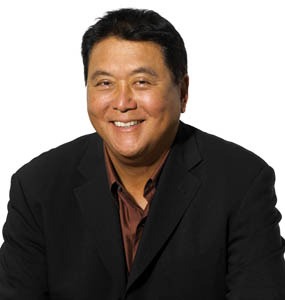 The groundbreaking best-seller “Rich Dad Poor Dad”
The groundbreaking best-seller “Rich Dad Poor Dad”–written by Robert Kiyosaki–compares the mindset of Kiyosaki’s father-who held several degrees and an important position in the government, but struggled financially–, with the mindset of his best friend’s father-who never even finished high school but left his son a financial empire.
In his book, Kiyosaki explains that the mindset held by each of these two men, his “poor dad” and his “rich dad”, was largely responsible for each man’s financial destiny. Here are seven mayor differences between the “poor dad” and the “rich dad” mentality:
- The “poor dad” mentality states that your wealth depends on your family of origin: to be rich, you have to be born rich. “Rich dad” espoused the view that being rich or poor is something that you learn. When you have the right belief system and you acquire the necessary knowledge on how to create, build, and protect wealth, you will become rich even if you were not born into a wealthy family.
- “Rich dad” taught Kiyosaki that he should get a job to learn and to acquire the necessary skills so that he could go on to start his own business. “Poor dad” saw his job as his source of income for life. While “rich dad” taught Kiyosaki to strive to become financially independent, “poor dad” taught him to depend on his employer for his financial well being.
- When faced with an opportunity, “rich dad” would ask himself: “How can I afford this?” This forced his mind to think and to come up with creative solutions to be able to take advantage of the opportunity that had presented itself. Instead, when presented with an opportunity, “poor dad” would dismiss it by saying: “It’s too bad I can’t afford this.”
- While “poor dad” stressed scholastic education, “rich dad” always stressed financial education.
- For “rich dad” the main cause of poverty or financial struggle was self-inflicted fear and ignorance. “Poor dad” blamed the economy and the job market. That is, “rich dad” always took responsibility for himself and felt that he created his circumstances, while “poor dad” often felt like a victim of the outside world.
- As for risk taking, “rich dad” taught Kiyosaki to learn to manage risk. “Poor dad” taught him that when it came to money, risk was something that should be avoided and to always play it safe.
- “Rich dad” taught Kiyosaki that failing was simply part of the process and that he should learn from his mistakes and move on. “Poor dad” attached great stigma to failure and was therefore afraid of making mistakes.
(Image of Kiyosaki taken from here.)
The Dalai Lama: Money is Good
Some people hold the belief that being economically successful is somehow not spiritual, and that it’s wrong to care about money. The Dalai Lama puts inner peace, health, and relationships before money; however, he considers money to be important. Here’s the Dalai Lama’s belief about money:
“Money is good. It is important. Without money, daily survival — not to mention further development — is impossible. So we are not even questioning its importance. At the same time, it is wrong to consider money a god or a substance endowed with some power of its own. To think that money is everything, and that just by having lots of it all our problems will be solved is a serious mistake.” (Source).
Donald Trump: Money is Simply a Measurement of How Well You Play the Game
 Donald Trump is an American business magnate and real estate developer. He’s famous both for his wealth and for his outspoken manner.
Donald Trump is an American business magnate and real estate developer. He’s famous both for his wealth and for his outspoken manner.
In the early 1990s his financial problems and creditor-led bailout were widely publicized. I recall having read an anecdote about Trump during this time. Trump was walking down the street with a friend and he pointed to a beggar sitting on the sidewalk. He told his friend, “That man has a higher net worth than I do”.
The late 1990s saw a resurgence in Trump’s financial situation. Today, Trump is on the Forbes’ list of billionaires for 2013, with a net worth of $3.2 billion.
To Trump, money is but “a scorecard that tells me I’ve won and by how much,” he says. “The real excitement is playing the game.” Trump is doing what he loves to do, and he’s having fun with it. This mentality is what has allowed him to amass billions, and what helped him to dig himself out of the hole he was in two decades ago.
Warren Buffett: The Importance of Self-Confidence
Warren Buffett is one of the most successful investors in the world, and is often referred to as “The Oracle of Omaha”. He’s one of the world’s five richest people. According to Buffett, having confidence in yourself is a key element in acquiring wealth. He once said the following: “I always knew I was going to be rich. I don’t think I ever doubted it for a minute.”
Jack Canfield on the Decision to Be Rich
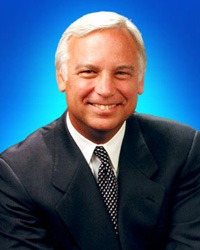 Jack Canfield is best known as the co-creator of the “Chicken Soup for the Soul” book series. This is what he has to say about the decision to be rich:
Jack Canfield is best known as the co-creator of the “Chicken Soup for the Soul” book series. This is what he has to say about the decision to be rich:
- You have to make the decision to be rich. If you don’t make that decision, your unconscious mind won’t work on trying to make it happen.
- Once you’ve made that decision, every morning and every night you need to visualize the rich lifestyle that you want to lead. What this does is program your unconscious mind to come up with solutions and to notice opportunities and resources in your environment that you would have otherwise missed.
- The third thing you want to do is to learn how to become rich by reading, attending seminars and lectures, and so on.
- Finally, find a way to get into the sphere of influence of people who are already wealthy. You want to be around those people in order to learn to think like them. (Source).
Mastering the Inner Game of Wealth: T. Harv Eker
The following quote by T. Harv Eker, author of “Secrets of the Millionaire Mind”, refers to the concept of a rich person’s mindset: “Rich people have a way of thinking that is different from poor and middle class people. They think differently about money, wealth, themselves, other people, and life.”
Here are 17 ways in which rich people think differently from the poor and middle class:
- Rich people believe “I create my life.” Poor people believe, “Life happens to me.”
- Rich people play the money game to win. Poor people play the money game to not lose.
- Rich people are committed to being rich. Poor people want to be rich.
- Rich people think big. Poor people think small.
- Rich people focus on opportunities. Poor people focus on obstacles.
- Rich people admire other rich and successful people. Poor people resent rich and successful people.
- Rich people associate with positive, successful people. Poor people associate with negative or unsuccessful people.
- Rich people are willing to promote themselves and their value. Poor people think negatively about selling and promotion.
- Rich people are bigger than their problems. Poor people are smaller than their problems.
- Rich people are excellent receivers. Poor people are poor receivers.
- Rich people choose to get paid based on results. Poor people choose to get paid based on time.
- Rich people think “both.” Poor people think “either/or.”
- Rich people focus on their net worth. Poor people focus on their working income.
- Rich people manage their money well. Poor people mismanage their money well.
- Rich people have their money work hard for them. Poor people work hard for their money.
- Rich people act in spite of fear. Poor people let fear stop them.
- Rich people constantly learn and grow. Poor people think they already know.
Steve Pavlina – Creating Abundance
 Steve Pavlina is the owner of the popular blog “Personal Development for Smart People”. In 2009 he recorded four YouTube videos in which he discusses how to create abundance. Here are some of the things he has to say in his videos:
Steve Pavlina is the owner of the popular blog “Personal Development for Smart People”. In 2009 he recorded four YouTube videos in which he discusses how to create abundance. Here are some of the things he has to say in his videos:
- If you want to create a feeling of abundance, you can do so no matter where you currently are financially. Steve shares that ten years ago he was $150,000.00 in debt. He had a negative cash flow, was about to declare bankruptcy, and was going to get kicked out of his apartment because he couldn’t pay the rent. Nonetheless, he was able to create abundance even from that starting point.
- He adds that instead of having an abundance mindset, what you need to have is an abundance heartset. It’s more of a feeling instead of a thought. Ask yourself: “If I already had everything I wanted, how would I feel about reality?” You would probably feel lucky, grateful, and fortunate. Those are the feelings you want to focus on.
- Feeling like you can create what you want is abundance. Feeling that you can’t create what you want is scarcity.
- Disconnecting from the things in your old reality and connecting with the things in your new reality–such as taking advantage of new business opportunities–will require courage. You’re going to have to move out of your current comfort zone and act in order to embrace new opportunities.
Conclusion
What are your money beliefs? Are they serving you well? If your money beliefs are not serving you well, go ahead and change them. You can start by adopting some of the money beliefs you just read about above. Live your best life by adopting powerful beliefs about money.

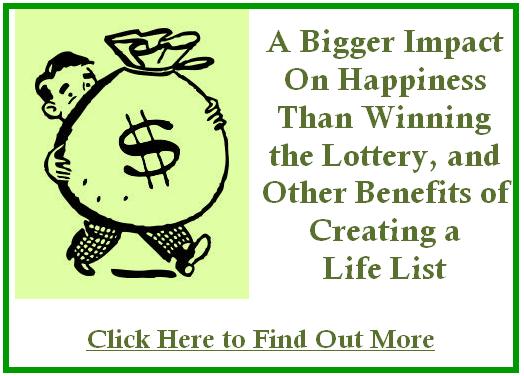
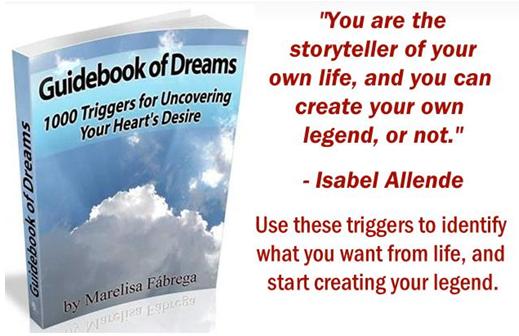
Related Posts:
1. Three Strategies For Financing Your Life Goals
2. Five Ways I Generate Passive Income Online
3. Prosperity Tips: 18 Ways to Increase Your Wealth
4. Seven Essential Ways to Build Wealth
Did you enjoy this article? Subscribe to “Daring to Live Fully” by RSS or by email, and get free updates.

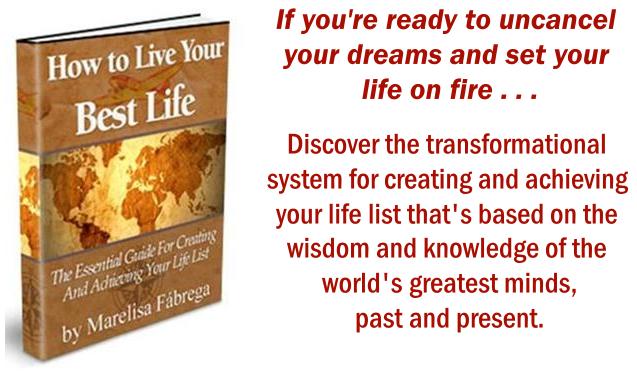
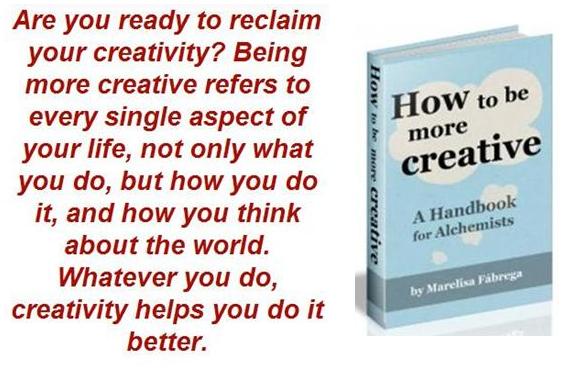

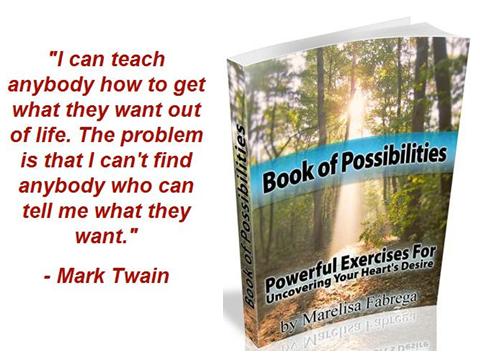



 Marelisa Fabrega is a lawyer and entrepreneur. She holds a Bachelor of Science in Business Administration from Georgetown University in Washington, D.C., as well as a Juris Doctor from the Georgetown University Law Center. You can learn more about her
Marelisa Fabrega is a lawyer and entrepreneur. She holds a Bachelor of Science in Business Administration from Georgetown University in Washington, D.C., as well as a Juris Doctor from the Georgetown University Law Center. You can learn more about her 





